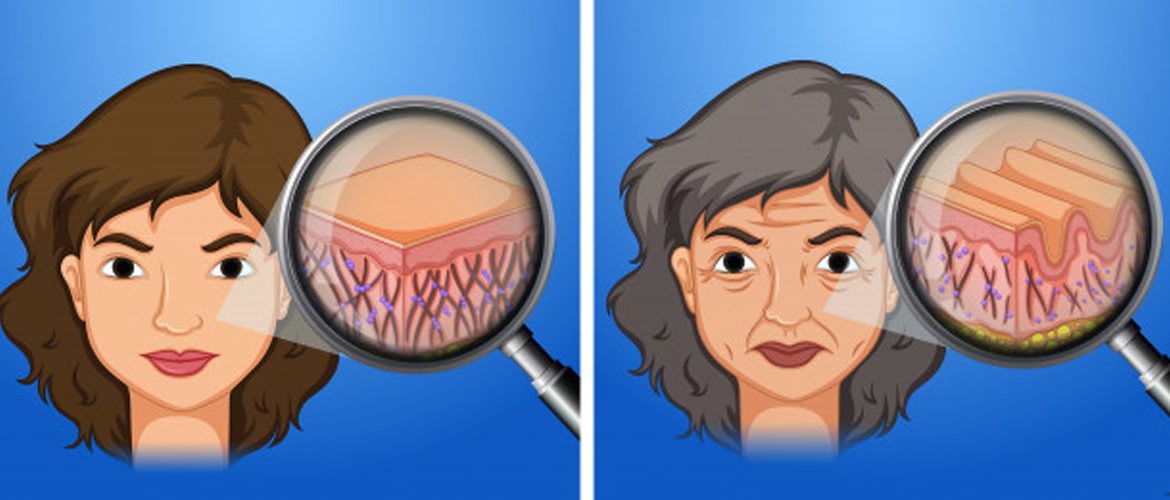Collagen, a structural protein, is a building block connecting cells, tissues, bones, and muscles. It maintains shape, elasticity, and strength, forms soft, supple skin, and aids in blood clotting in emergencies.
What Are the Types of Collagen?
To know how collagen helps in skin care it is important to know about the types.
There are 4 main types of collagen namely, Type I, II, III and IV
Type I Collagen: Type I collagen is the most abundant and widely distributed type in the body. It provides strength and structural support to the skin, bones, tendons, ligaments, and other connective tissues.
Type II Collagen: Type II collagen is primarily found in cartilage, which cushions and protects the joints. It gives cartilage its elasticity and contributes to joint flexibility and mobility.
Type III Collagen: Type III collagen is often found alongside type I collagen and provides structural support in tissues such as skin, muscles, and blood vessels. It plays a role in wound healing and tissue regeneration.
Type IV Collagen: Type IV collagen forms a crucial component of the basement membrane, a thin layer that supports and separates various tissues and organs. It is essential for maintaining the integrity of the skin, blood vessels, and other organs.
How Does Collagen Help in Skincare?
Collagen is the main skin structure, maintaining rigidity, elasticity, and hydration, while protecting tissue firmness and promoting youthfulness.
Natural Collagen for Skin Care
It takes up to 6 months for collagen to get synthesized in our body. However, you can add collagen in your diet by taking food that contains natural collagen.
Food That Boosts Collagen Production in the Body Naturally
- Bone broth
- Fish and Chicken bones
- Egg white
- Citrus fruits
- Berries
- Nuts
- Garlic
- Dark leafy vegetables
Collagen Supplement for Skin
Your body produces enough collagen. But few reasons like aging, poor diet and certain genetic conditions can affect collagen synthesis in the body. In such cases, you can take collagen supplements under medical supervision. Supplemental collagen is available in the form of capsules, tablets, and powders. It can be taken with meals. It is broken down into peptides through a process called hydrolysis for easy absorption in our body.
Collagen in Cosmetics for Skincare
Collagen is said to improve skin health and appearance and delay the signs of aging. So there are plenty of cosmetic brands which came up with wrinkle creams, blemish ointments and anti-aging serum in which collagen is the main ingredient. But they are for instant radiance and youthful look. It can make your skin look perfect on the surface. If you want only to look young for the evening party a collagen-containing cream is the best option.
But your skin doesn’t absorb the synthetic collagen in the cosmetics and does not repair it. If you want to repair your body from within consider taking natural foods and supplements which work from within your body and reboot your cells.
Does collagen skincare actually work?
Collagen skin care products have gained popularity in recent years, claiming to promote youthful, firm skin by replenishing collagen levels. However, the effectiveness of collagen skincare in improving skin health and appearance is a topic of debate.
Collagen is a protein naturally present in our skin that provides structure and elasticity. As we age, our collagen production decreases, leading to signs of aging like wrinkles and sagging skin. Collagen skincare products aim to restore or stimulate collagen production, typically through topical creams, serums, or supplements.
While collagen is an essential component of healthy skin, the effectiveness of collagen skincare products in delivering visible results is not yet fully supported by scientific evidence. The main challenge lies in the molecule size of collagen, as it is often too large to penetrate the skin effectively. Therefore, collagen molecules in topical products may not reach the deeper layers of the skin where collagen synthesis occurs.


















